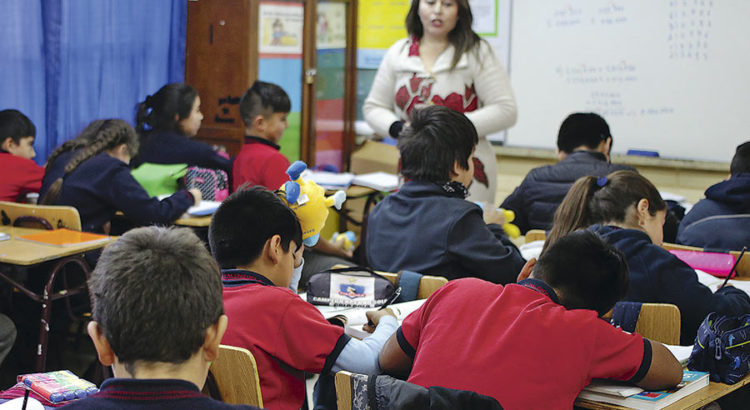By: Ron Matus.
Over the past 20 years, Florida public schools have improved as much as any in America. At the same time, educational choice here revved from fringe to mainstream. That’s a point worth noting to those who keep insisting, with zero evidence, that expanding choice hurts public schools.
In his South Florida Sun Sentinel column, Randy Schultz wrote that lawmakers who’ve proposed a new private school voucher are trying to “undermine public education” and “turbocharge the privatization of Florida’s public schools.” They’re trying to make education profitable instead of better, he wrote. They’re ignoring questions and contrary evidence.
They’re not alone. Florida’s high school graduation rate now stands at 86 percent, up from 52 percent in the 1990s. We now rank third (behind Massachusetts and Connecticut) in the percentage of graduating seniors who’ve passed college-caliber Advanced Placement exams.
We now rank No. 1, No. 1, No.3 and No. 8 on the four core tests that make up the National Assessment of Educational Progress, once adjusted for demographics. Education Week just ranked us No. 4 in K-12 achievement, after a decade in which we ranked no lower than No. 12.
Schultz mentioned none of this.
Clearly, expansion of choice didn’t “undermine public education.” We have one of the biggest charter school sectors in America, one of the biggest private school voucher programs, the biggest tax credit scholarship, the biggest education savings account.
We also have, not coincidentally, some of the biggest and best district choice programs, from magnets and career academies to IB and dual enrollment. All in all, 47 percent of Florida students in PreK-12 — 1.7 million children — now attend something other than zoned neighborhood schools. And guess what? No apocalypse. Just more students getting the increasingly customized education their parents want for them.
Schultz also wrote, “No one knows how well the state’s voucher students are doing.” How odd. Just last month, the respected and left-leaning Urban Institute released a report that found students using the Florida Tax Credit Scholarship for low-income students are up to 43 percent more likely to attend four-year colleges than like students in public schools, and up to 20 percent more likely to earn bachelor’s degrees. Schultz didn’t mention this. Clearly, it didn’t fit the narrative about “unaccountable” schools.
Accountability is different for public and private schools. But it’s hard to argue that private schools don’t have enough when dissatisfied parents can, unlike parents in public schools, leave at any time. Balancing regulatory accountability with parental choice is a work in progress, but the Urban Institute findings suggest that when given discretion to determine quality, parents choose wisely.
It’s true, too, there are shysters and scandals in the private school space. More is being done to keep them out or exit them sooner. But private schools hardly corner the market on rotten apples. If somebody pieced together all the maddening headlines generated by districts and district schools, they could paint the most damning portrait. But nobody with a fair mind would do that.
Schultz seems most torqued by the possibility the new voucher may extend eligibility into the middle class. That, too, is odd. None of Florida’s other “vouchers” — which provide state support for private school tuition — are means tested. We don’t tell millionaires they can’t get state money for VPK, or a Bright Futures scholarship for college, or a McKay Scholarship for students with disabilities, because they’re too wealthy. Does Schultz’s outrage extend to those programs as well?
I’m encouraged lawmakers want to ensure low-income parents get priority for the proposed voucher. I also don’t see a mass exodus. The vast majority of middle-class parents, like me, like their public schools a lot. If some want options, for whatever reason, they should have that freedom.
One last point: The lion’s share of private schools participating in Florida scholarship programs are tiny nonprofits. The value of the tax credit scholarship, and the proposed new scholarships, is about 60 percent of total per-pupil spending for Florida district schools, which are among the lowest-funded in America. Yet Schultz concludes that what lawmakers really want to do is to make education “profitable.” That just doesn’t add up.
Source of the article: https://www.sun-sentinel.com/opinion/commentary/fl-op-com-more-school-choice-20190321-story.html






 Users Today : 109
Users Today : 109 Total Users : 35459575
Total Users : 35459575 Views Today : 172
Views Today : 172 Total views : 3417930
Total views : 3417930